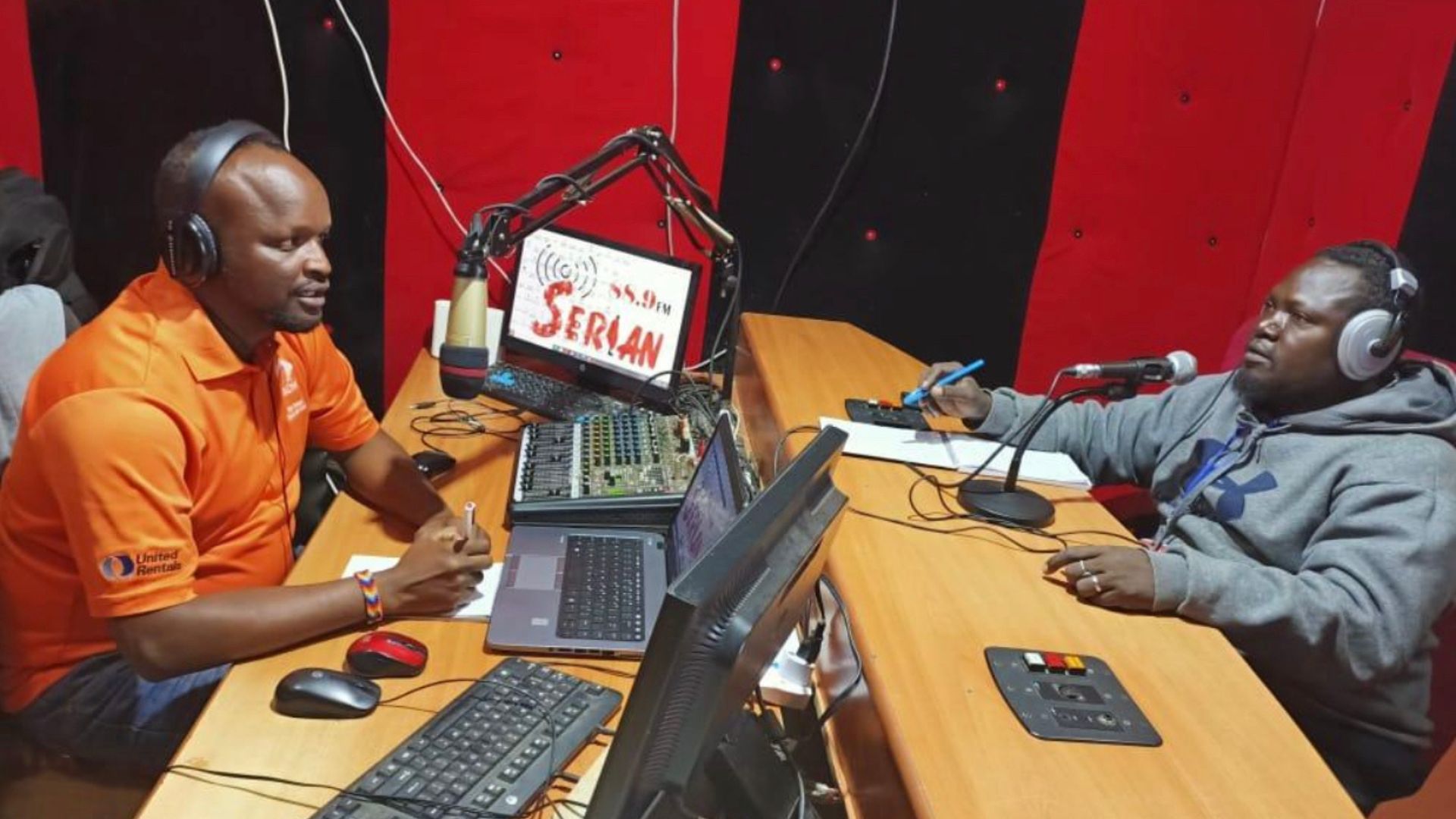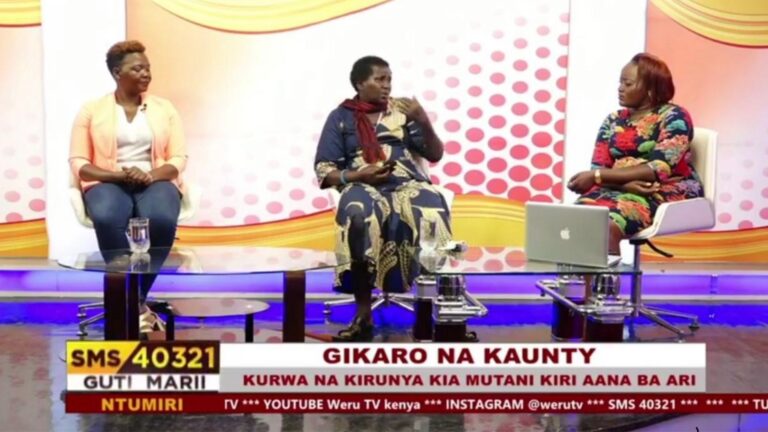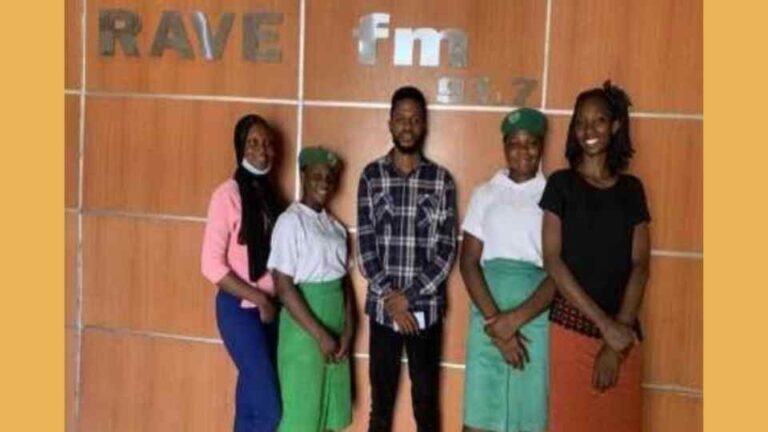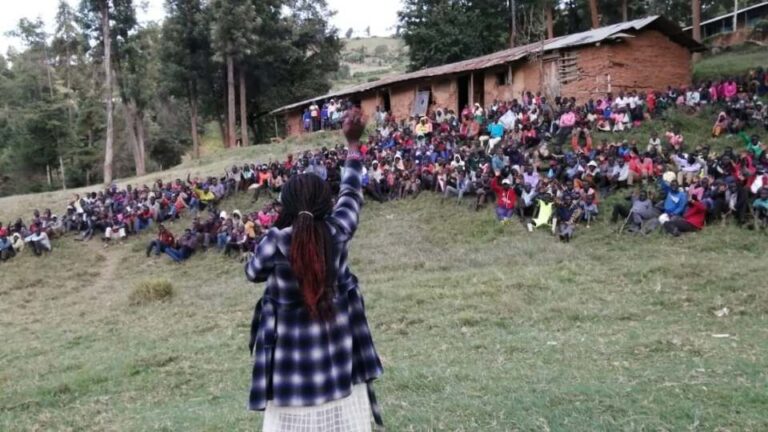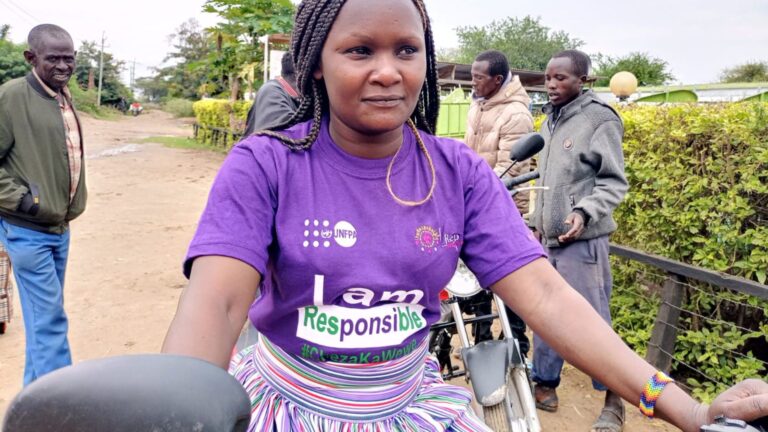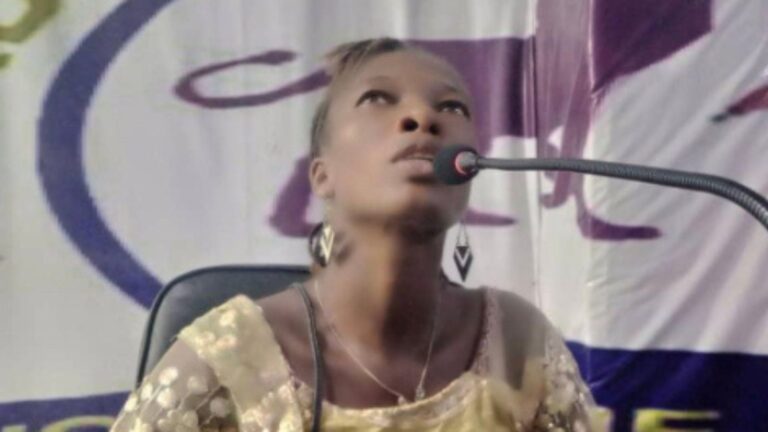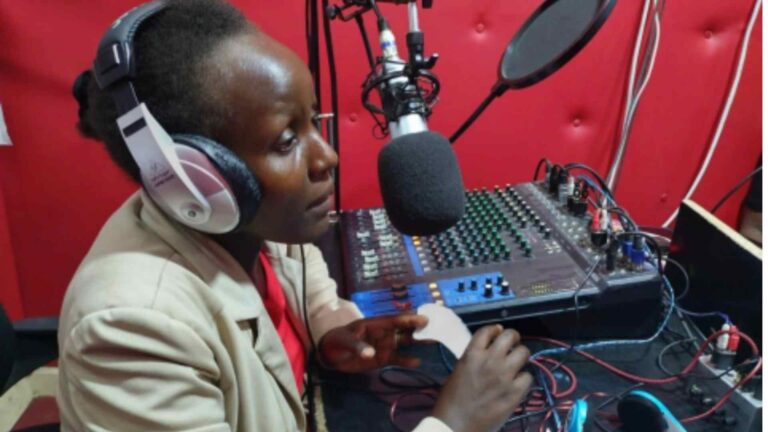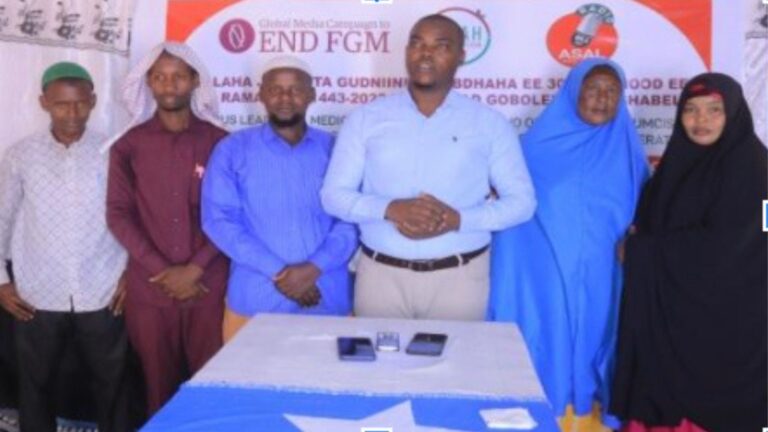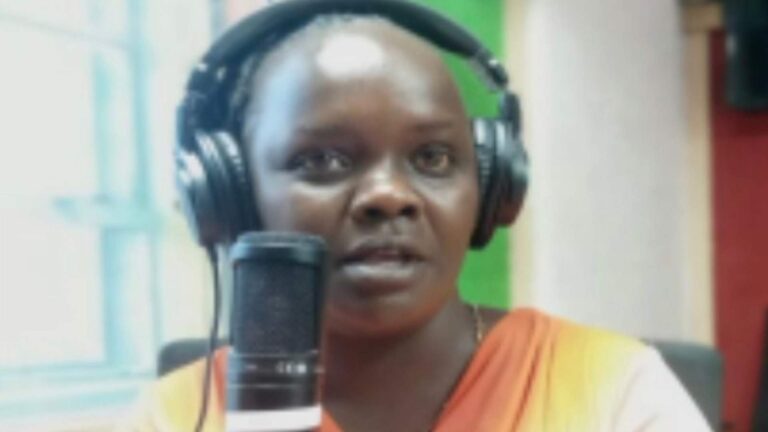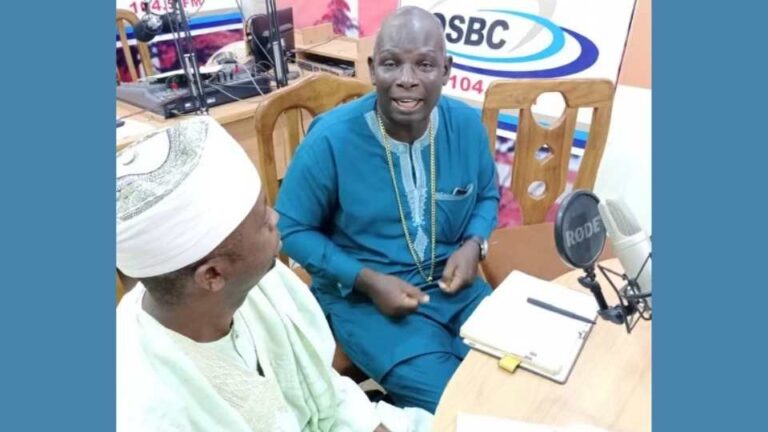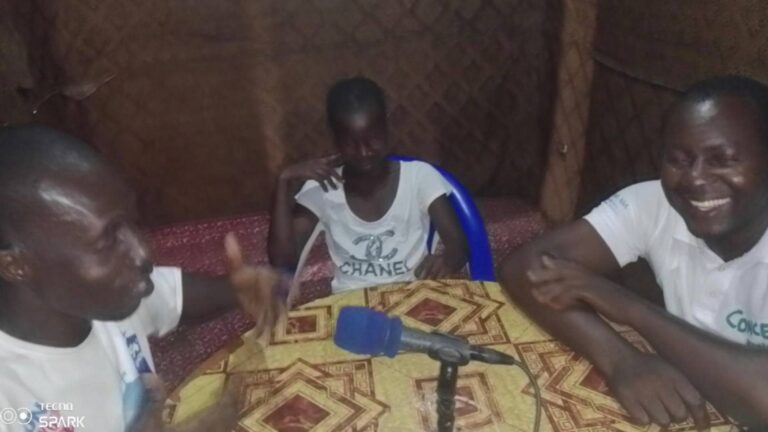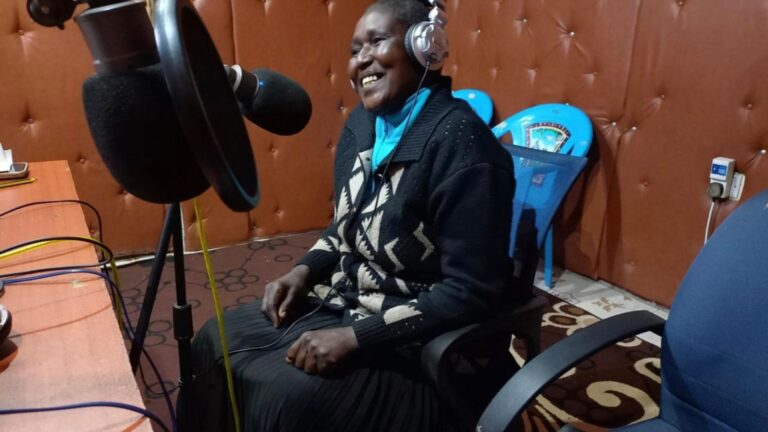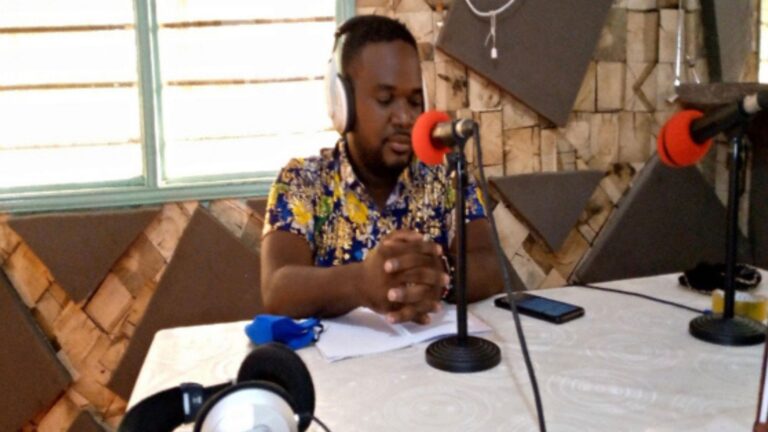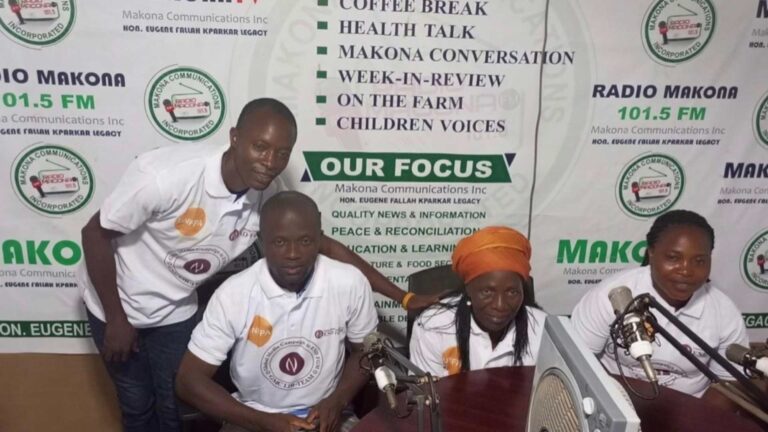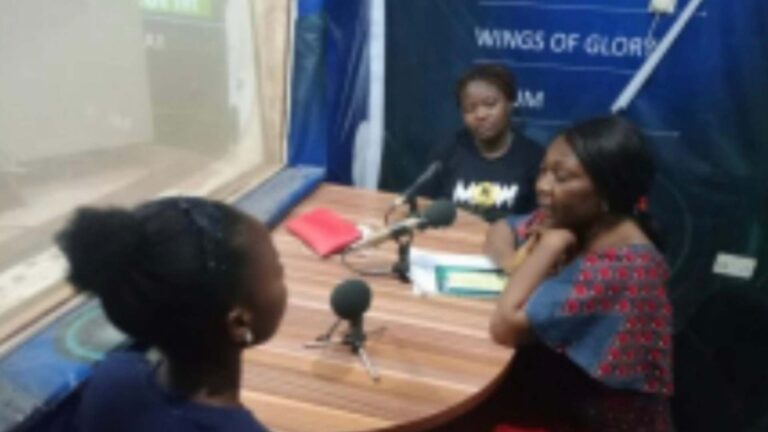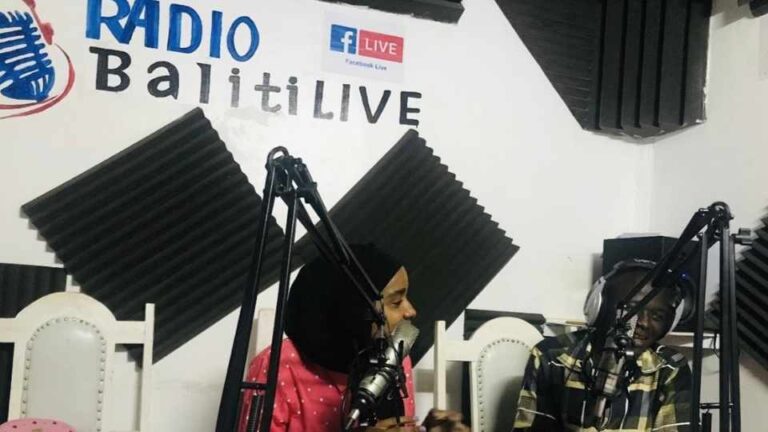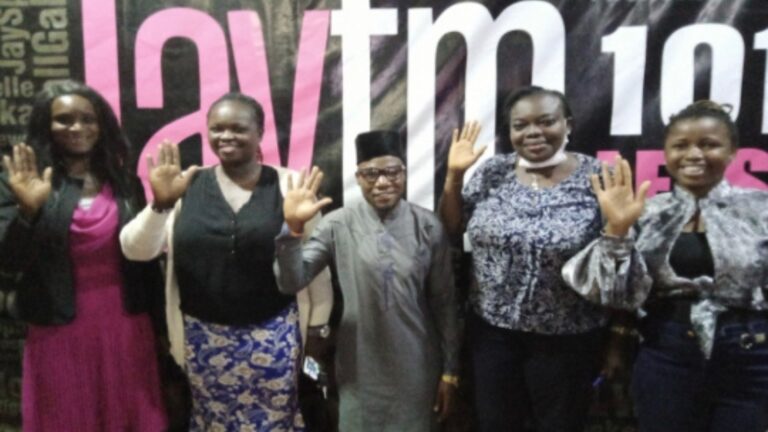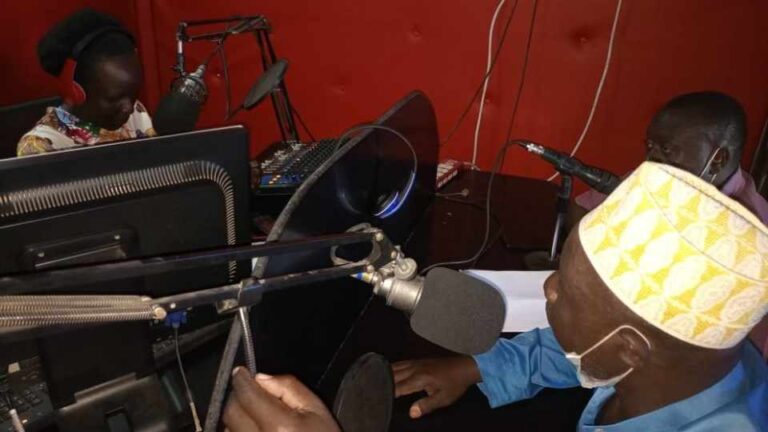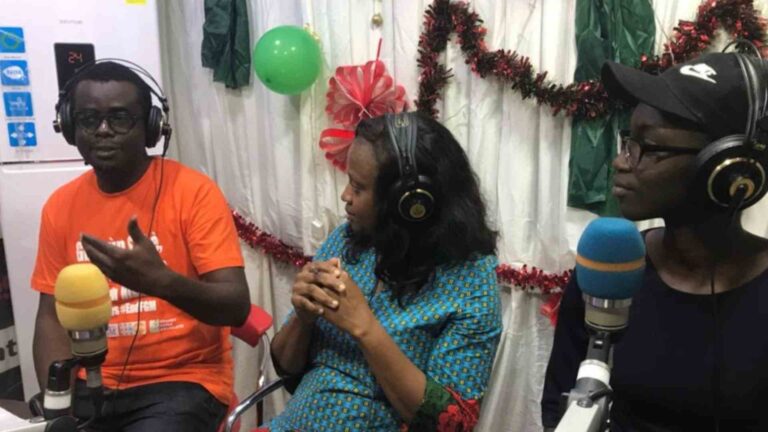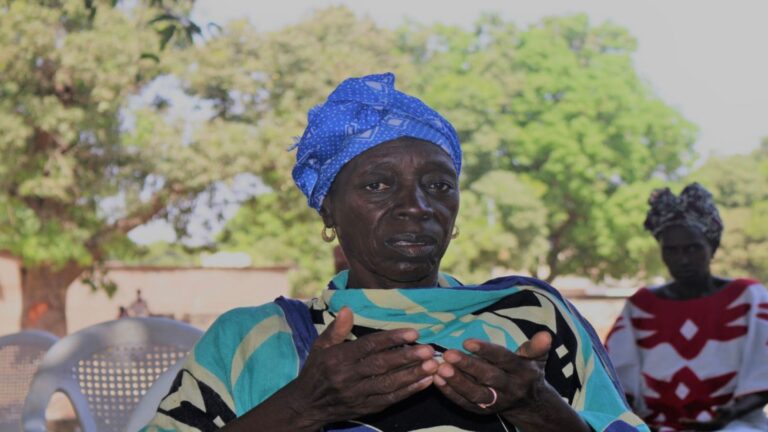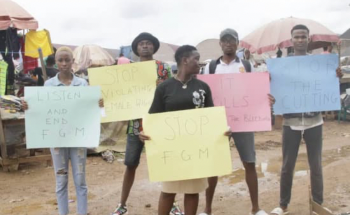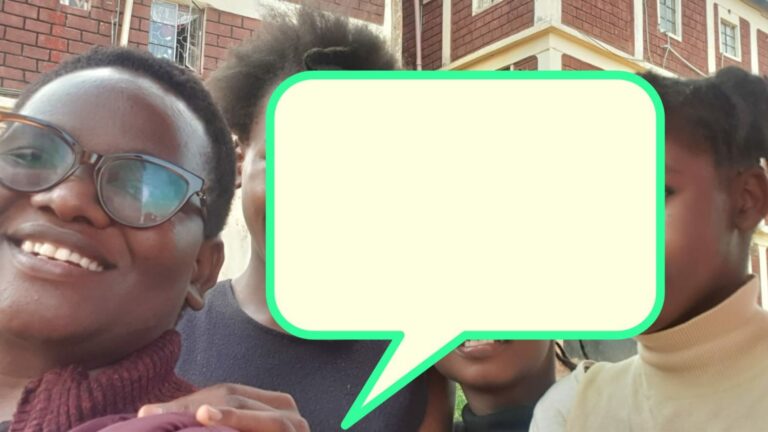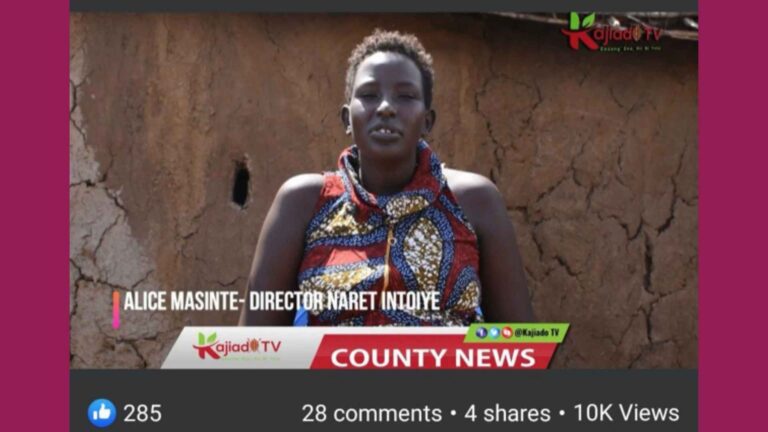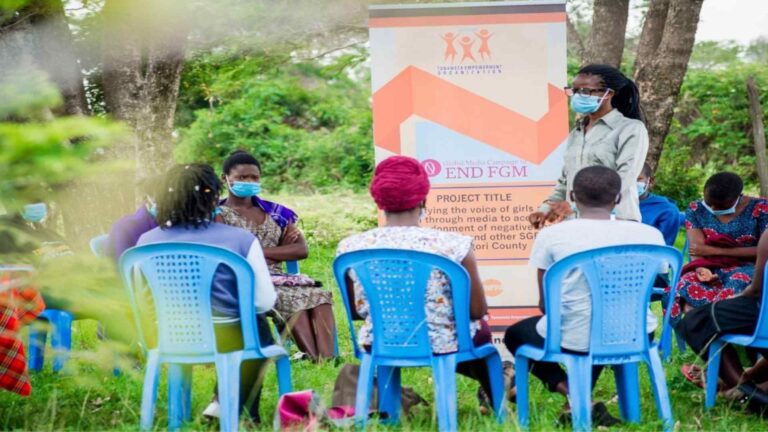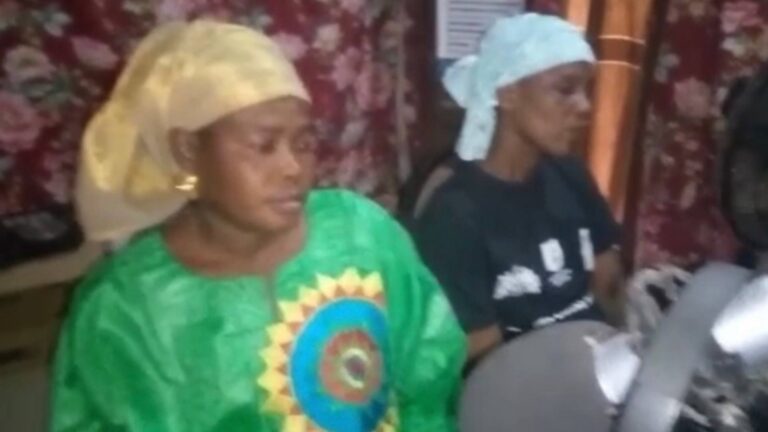By Samuel Leadismo,
During this reporting period, the project has made good progress toward its goal of reducing incidences of FGM and child marriage outcomes. Girls and women suffered mutilation on the basis of the rite of passage to womanhood which is considered unclean and unsuitable for marriage.
FGM prevalence is 86% in the Samburu community, the practice is deeply rooted in Samburu, narrowing of the vaginal orifice with the creation of covering seal by cutting and opposition the labia minora or labia majora with or without excision of the clitoris.
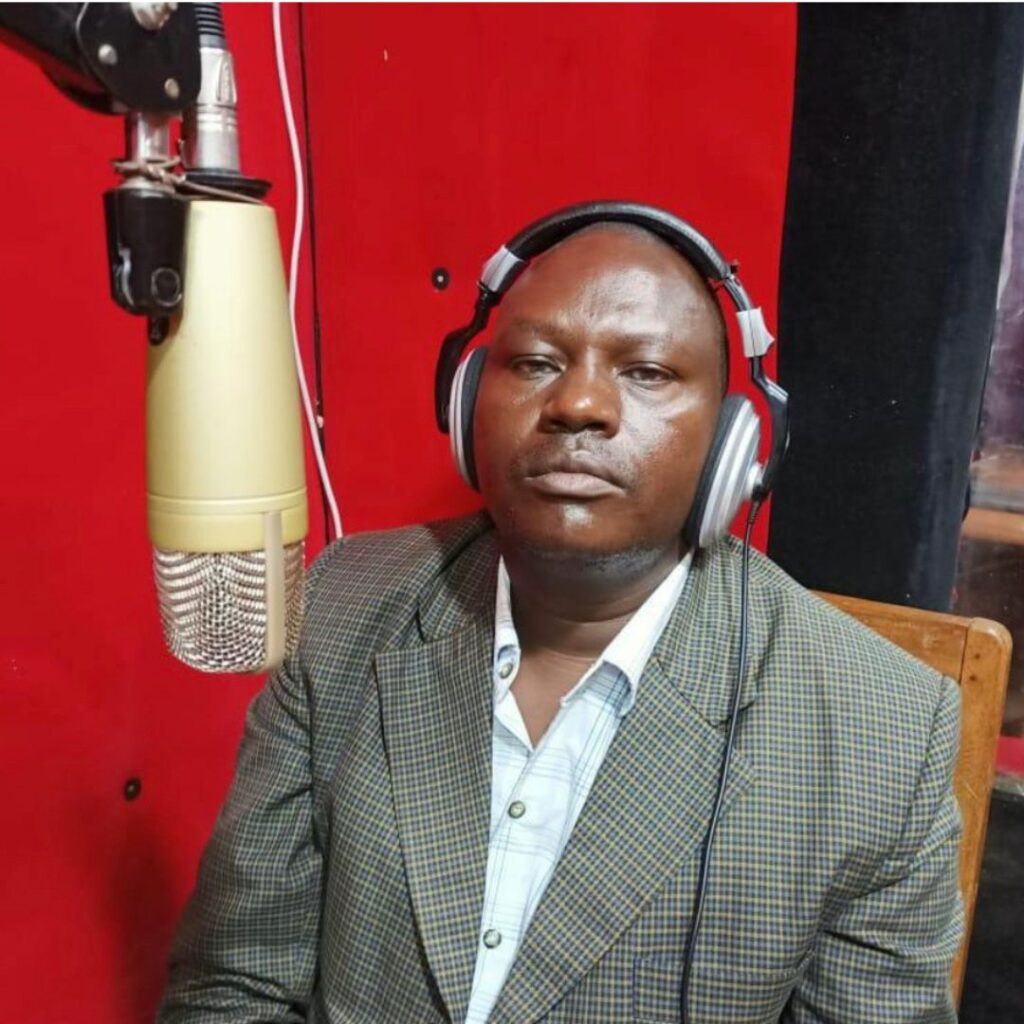
Dr. Letiwa speaking on the effects of FGM
The project focused on more responsive community members and duty bearers with increased capacity to prevent and respond to FGM and child marriage; as a result, the project has reached more than 8,000 members of the community which include girls and boys, men and women, youths, service providers (health practitioners, police officers), teachers, and chiefs. This was achieved through active participation and contribution from the radio show session in partnership with the Global Media Campaign To End FGM(GMC).
The radio show empowered the community members on child rights and protections and the importance of education.
The Pastoralist Child Foundation has devised innovative and comprehensive approaches to prevent FGM/C in Samburu not only in the short-term but also in the long-term. The organization’s approach has seen it widen the scope of its advocacy.
Mzee Learus discusses the effects of FGM:
The community is willing to accept the change, women did confess in the discussion that their daughters will not be mutilated. Some elders did agree but they requested that an alternative to the FGM as a rite of passage to womanhood and marriage be introduced. The ARP should be in line with the community norms and customs.
There is an increased change of attitude towards advocating response towards prevention and protection of children from FGM and child marriage. This is evidenced by the increased awareness of the community at the village level and health centers where the Samburu young people are empowering the community at the family, clan, and community levels.
The team also empowered on child rights, life skills management, career guidance, self-awareness, reproductive health, and alternative rite of passage. We were able to advise members to take initiative and be change agents at the family, clan, and community levels.
Health reproductive Officer Samburu-Dr Lerte with Nick Lenyakopiro speaking on reproductive health issues and How FGM has NO health benefits.
Pastoralist Child Foundation has learned that there’s a great thirst for knowledge in the pastoralist community. When an organisation working on the ground dedicates its work to the empowerment of its own community the people are supportive. We now have elders cheering us on and saying, “No FGM!” community members who have attended our radio show share what they’ve learned with us at the end of the show.
Most elders and men are completely clueless about the magnitude of harmful effects FGM has on their daughters and wives. When females complain of physical pain, they often disregard the cries. Now they know the reasons for the physical, emotional, and psychological scars, wounds, and pain. We view it as the era in which the light has begun to shine, and the efforts to ensure continuity of shine are our focus.
LESSONS LEARNED.
- The engagement of elders in the fight against FGM is very key in the Samburu community.
- The right approach considering DO NOT HARM is one of the strategies to work at the grassroots level and empower the community to be informed about the effects of FGM.
- Collaboration with child protection actors is key to working together and involving government, especially in mapping all hotspots of FGM for empowerment.
- FGM is practiced secretly in Samburu, with some doing it at night without even following the Samburu rituals.
- Tribal elders to be involved in the declaration, and empowerment in remote areas where the level of education is extremely low.
- The elders, women, and area advisory council confirmed that they will support any stakeholders who are ready to fight the vice and educate our children.
Progress towards outcomes and outputs:
Outcome 1: More responsive community members and duty bearers with increased capacity to prevent and respond to FGM and child marriage.
Outcome progress: Community members, government staff, and other stakeholders are handling child protection issues and also responding to FGM and other related concerns. Youths and morans are willing to accept change, some have already married uncircumcised ladies, and trained girls said NO to FGM and child marriage. This has been attributed to the meetings and training conducted by the project in partnership with other stakeholders.


